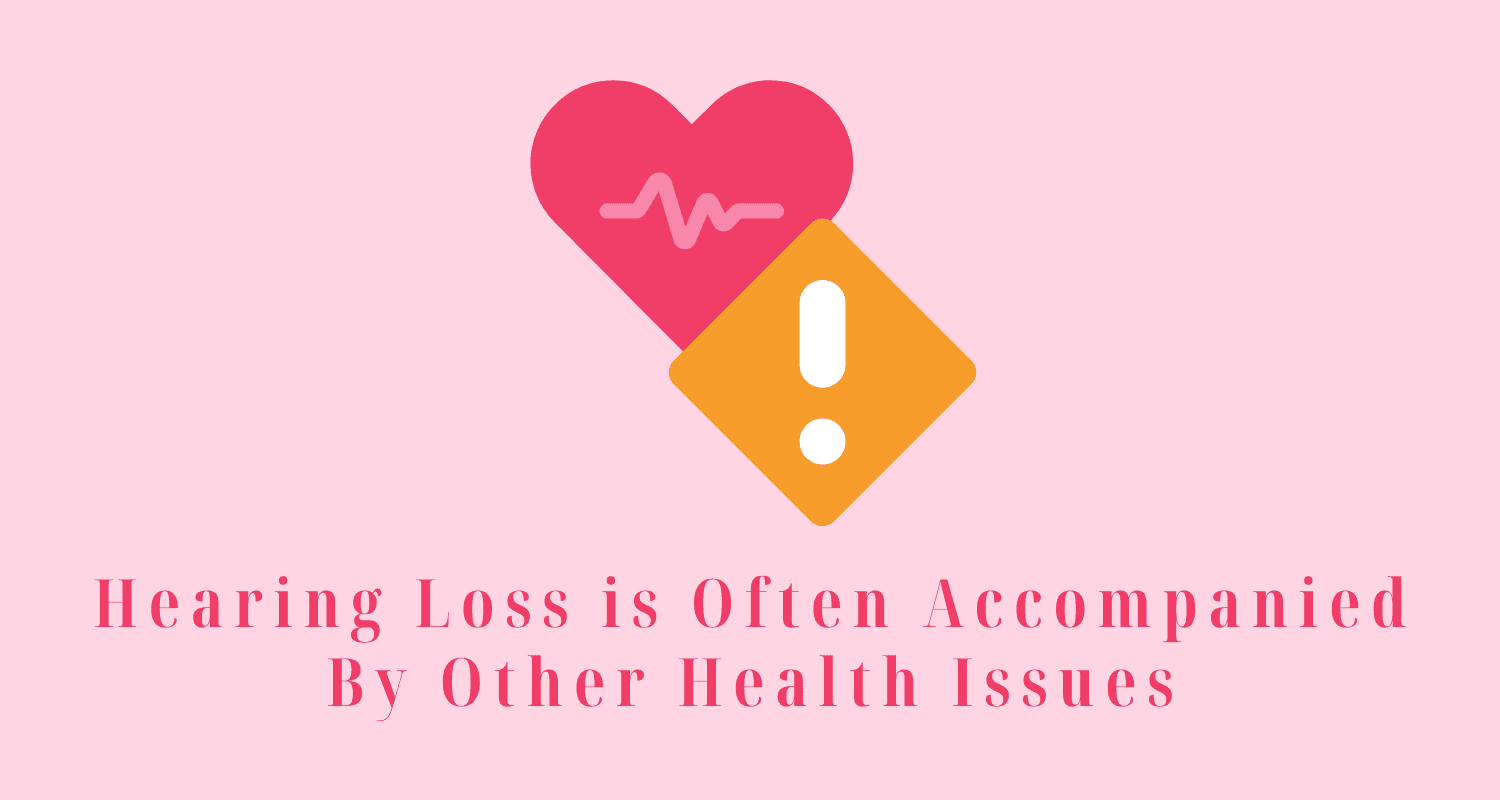
We don’t often think about our health and wellbeing until something goes wrong. And when we do notice a health issue, we tend to think about each issue in isolation. We forget that the body is connected, and an illness or health issue can affect other parts of the body as well. Take hearing loss for example.
You may think that hearing loss just affects your ears. But it goes much deeper than that. Hearing loss may start in your ears, but it also affects your brain. And hearing loss is often accompanied by other health issues such as tinnitus, heart disease, hypertension, and even dementia.
What is Hearing Loss?
Hearing loss often starts in your ears. Sensorineural hearing loss, the most common kind of hearing loss, is usually caused by damage to the cells in the inner ear. These cells interpret the sound waves and transform the sound waves into electrical signals. These signals travel up the auditory nerve to the brain, where your brain translates the signals, allowing you to experience sound.
However, when these cells are damaged they stop analyzing the sound waves, and they don’t send signals to the brain. Your brain still gets signals from healthy cells, but won’t get signals from damaged cells. And that’s why you experience hearing loss.
Conductive hearing loss also affects your ears. This hearing loss is caused by damage to the outer or middle ear. This could be from a head or ear injury, an illness or infection, or even tumor growth.
Other Health Issues
You might think that hearing loss is no big deal, but your overall health is affected by each and every part of your body. For example, when you have hearing loss your brain suffers as well. You spend a lot of energy straining to hear, and you may not have enough brainpower left over to follow conversations, process memories, or multitask. Those with untreated hearing loss have more rapid cognitive decline and have far higher rates of dementia and Alzheimer’s Disease.
Hearing loss isn’t just about your ears, it’s about your overall health as well.
Studying Hearing Loss and Health
People living with untreated hearing loss often withdraw from social situations, since all the background noise makes it impossible to hear. Those with hearing loss stay home more often, get less physical exercise, and have a higher risk of heart disease along with other health issues.
One recent study published in March 2021 found that those with untreated hearing loss were much more likely to experience other health issues, which included:
- Tinnitus
- Heart disease
- Cancer
- Diabetes
- Hypertension
- Stroke
- High cholesterol
All of these health issues increased among those with more severe hearing loss. People with hearing loss were 2 to 3.5 times more likely to have these other health issues when compared to people with normal hearing.
Treating Hearing Loss
Your ears aren’t an isolated system. That’s why you shouldn’t ignore your hearing loss. When you treat your hearing loss, you can improve your overall health, and lower your risk of these other health issues.
Treating hearing loss with quality hearing aids helps you stay more socially active. You’ll easily hear conversations, even if several people are talking at once, or there’s a lot of background noise. You’ll enjoy attending social events and you won’t get exhausted straining to hear. Having conversations with loved ones will also keep your mind sharp, providing the right kind of brain exercise that will keep you healthy.
Treating hearing loss can also help you stay more physically active. You will feel more energetic and be inspired to spend more time out and about. You can also localize sounds more easily, or determine where sounds are coming from. This gives you the confidence to drive more safely, go for a walk in the neighborhood, or spend an afternoon in the park with your grandkids.
Schedule a Hearing Test
Are you ready to do the right thing for your overall health and wellbeing? Schedule a hearing test and find out more about your ears. If you have hearing loss, we’ll help you find the perfect hearing aids that will help you hear, and lower your risk of other health issues.
